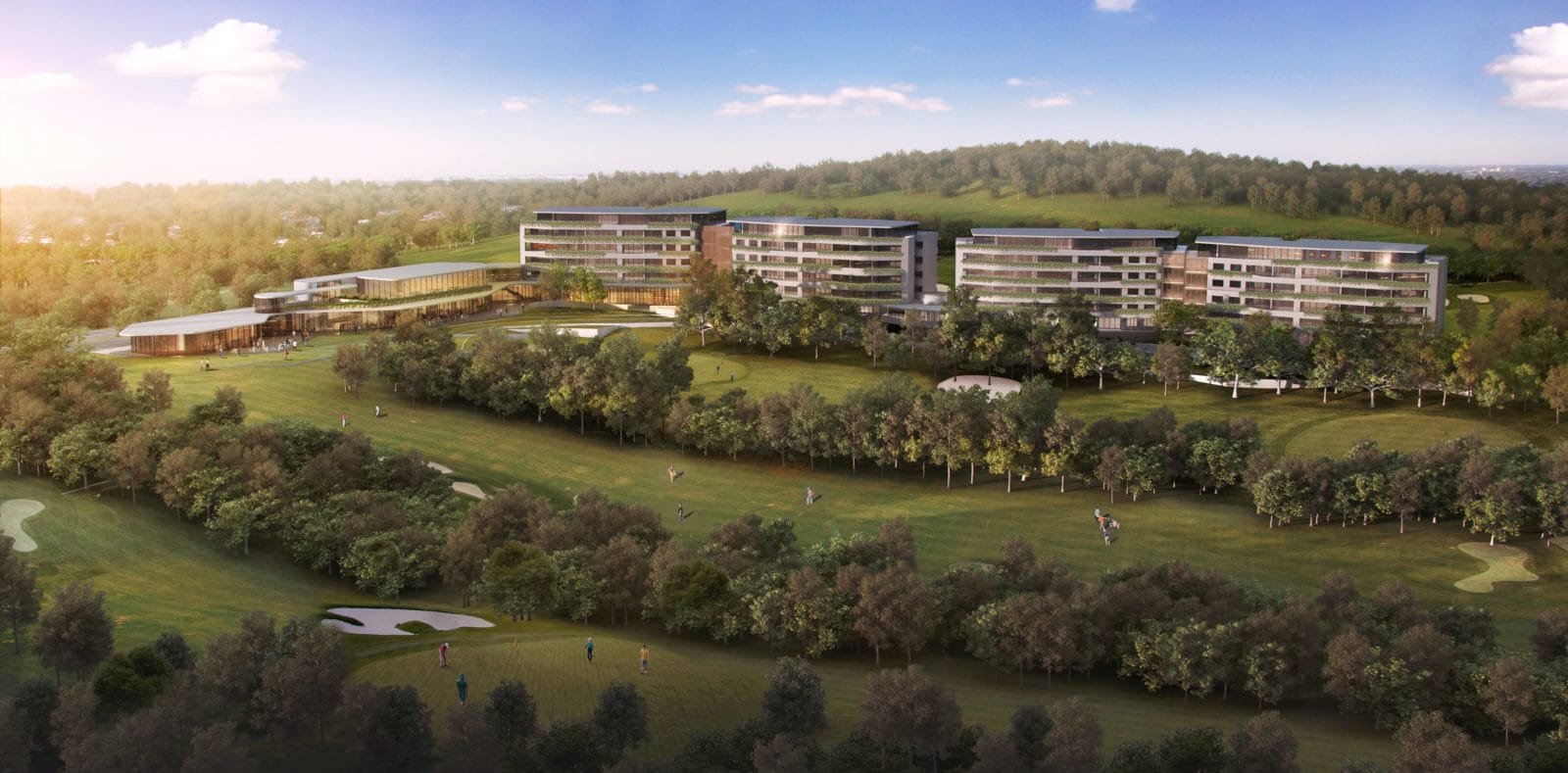Australia is a drop in the ocean in terms of capital and development globally.
So for those who make the dive into the international pool there is a lot to learn, particularly when working on a mega-scale.
Across the world, a diverse group of mega-projects are slated for completion in 2024, from tall towers to rail networks, airports to whole new cities, precincts and arenas.
For some it is go big or go home, for others it is an opportunity to expand into a new market.
DKO founding partner Koos de Keijzer is off to Jakarta to set up an office in Indonesia and to design housing parcels within PIK2, an upscale waterfront project north of Jakarta featuring residential areas, commercial spaces, and recreational facilities.
Property developer Agung Sedayu and Salim Group are behind plans to create the new Jakarta city. De Keijzer says they are working with the developers to design homes within the project.
“They have a 6000ha site on the north side of Jakarta up against the sea—and we are doing three or four housing parcels,” de Keijzer tells The Urban Developer.
“Like most things in South-East Asia it is a colossal project, it’s all about the rising Indonesian middle class.
“We got that job because we’re working with the same developer on Belmont Park in Perth and hence they liked our work and the way we approached things.”
Golden Sedayu has a 38ha, $3.8-billion project, including a racecourse, towers and entertainment precinct on the Swan River.
Also on the cards for DKO offshore are a boutique Bali restaurant, Saltlick; 1000 apartments in Vietnam, Kiwi mega-churches and the Pullman Accor Hotel at Hamilton, also in New Zealand.
“All our work outside Australia is strongly relationship based,” de Keijzer says. “But in Vietnam I’ve probably learned a lot more there than I taught them.
“The way they deal with density is an approach we can learn from.
“The urban form is quite different, they have houses four or five storeys tall, all through-ventilated and it is easy to have a private part of the house and a public part of the house.
“It’s a typology we don’t really work with in Australia. We are trying to but the planning rules are quite onerous.”
Of the Australians working on mega-projects, some do so directly with Australian-based companies as is the case for DKO while others are withglobal firms.
There are Aussies at the engineering business Robert Bird Group working on Kai Tak Sports Park in Hong Kong, Spotify Cam Nou in Barcelona, and Sound Storm in Riyadh as well as several airports.
While perhaps not quite meeting the mega-project threshold, but with a sizable £180-million project under way in London, and a $2.5-billion pipeline, is Third.i Group.
Of the 160 build-to-sell apartments in its Graphite Square project at Vauxhall on the south bank of the Thames, less than 30 apartments are unsold.
Third.i director Luke Berry says while there are similarities between the UK and Australia, notable differences in Britain include about 70 banks interested in financing property projects.
“That means it is a lot more competitive with our funding and we can get a better outcome and terms, that’s an advantage,” Berry says.
“Some of the funding partners who have invested in London with us now want to invest with us in Australia, and it goes the other way.
“London as a landscape is so competitive. When you launch a project in Sydney, a global city in its own right, there may be four projects launching at the same time.
“When you launch in London that could be 30 to 40 and the media landscape is so vast.
“Over here there’s core media partners we work with to launch to the market but in London there’s hundreds of options.”
This is creating new opportunities and challenges for the developer but there is also another buyer pool, the bulk buyer.
“The appetite to buy stock in London in bulk is something that I haven’t seen in Australia for a long time—from a foreign investment view we haven’t made it easy,” Berry says.
“I’ve got clients who have bought five to 10 apartments in a line.”
“We’ve had clients, site unseen, spend £10 million to £20 million remotely from the Middle East and Far East wanting to invest in London real estate because it is so stable and so safe.”
Third.i is now planning to expand in the Lambeth borough with several sites in the pipeline for projects from 50 to 500 apartments each.
Subscribe for Updates
Stay informed about our latest projects, investment opportunities, and industry insights by subscribing to our exclusive Third.i Group updates.
"*" indicates required fields



